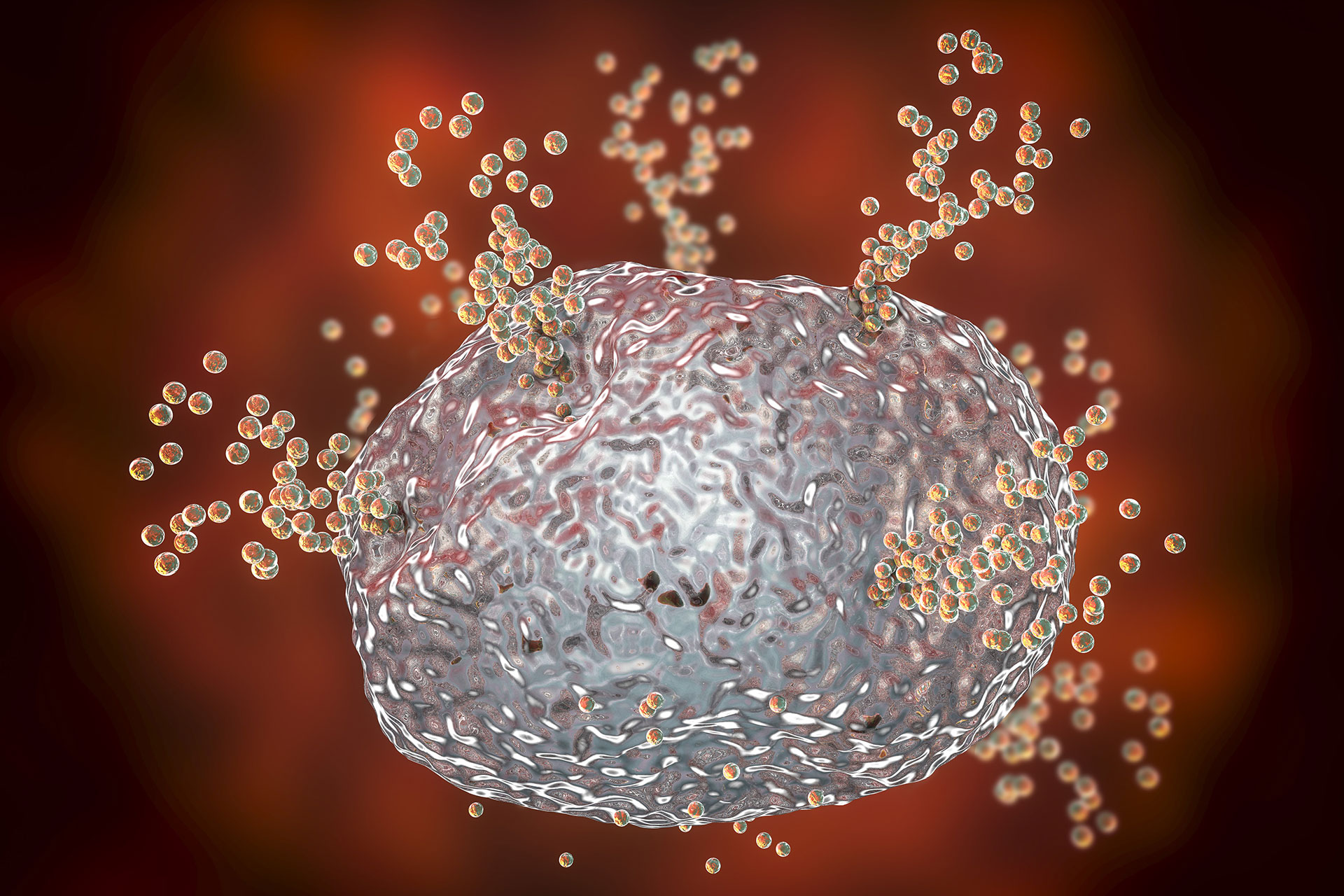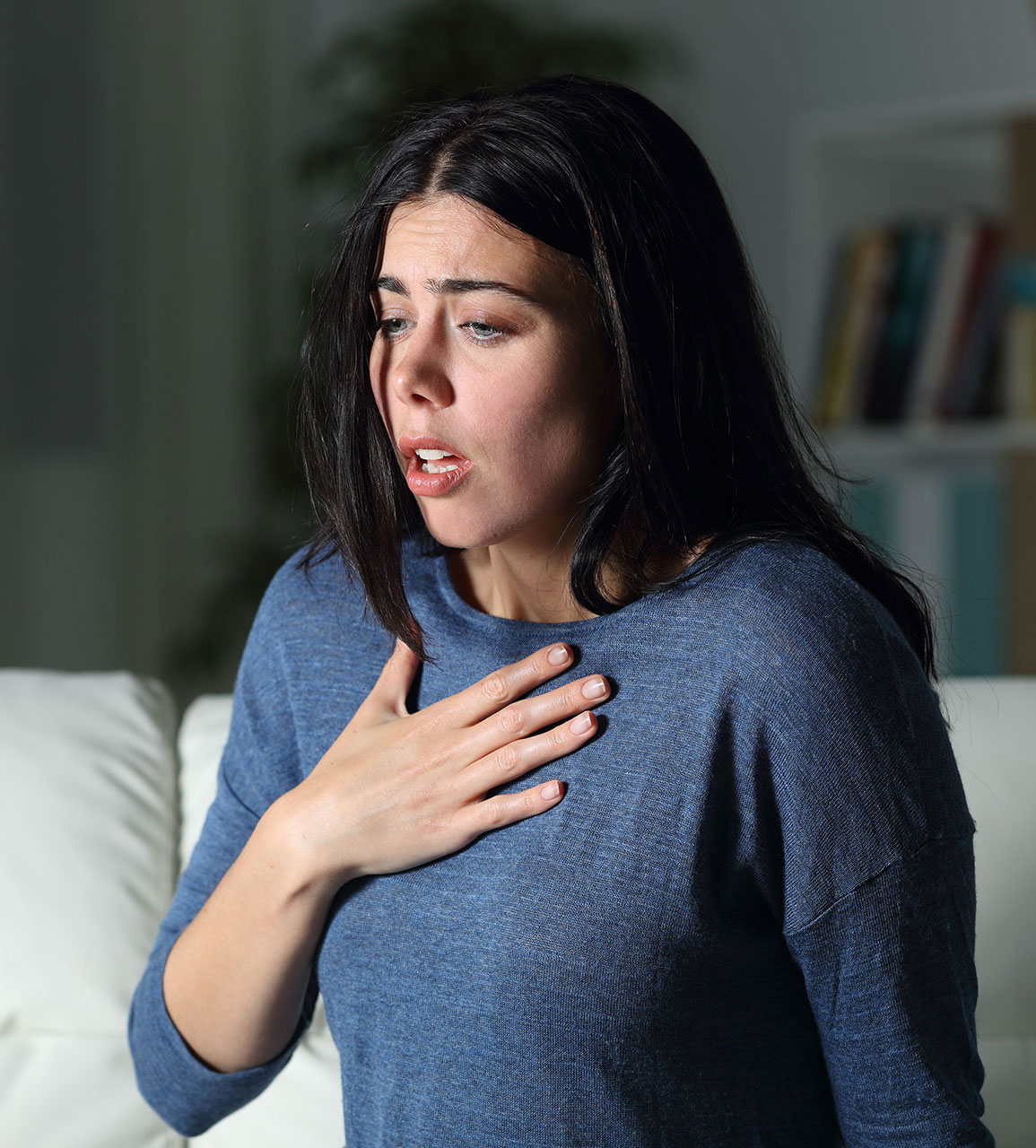For over two decades, histamine intolerance hijacked my life.
Back then, I thought histamine was just responsible for my nuclear-level allergy symptoms like itchy, watery eyes, sneezing, congestion and chronic sinus infections.
I had no idea that histamine was also to blame for my digestive issues, overactive bladder, acne, asthma, brain fog, insomnia, fainting spells (POTS), and anxiety. Histamine intolerance just wasn’t something that was known about or understood by doctors or even holistic practitioners. (Regrettably, most doctors still don’t…)
In fact, because I was taking so many antihistamines, I assumed that histamine itself was a bad thing. That couldn’t be further from the truth!
Understanding your symptoms, and why they’re happening is the first step to ending them.
So what is histamine exactly?

Histamine is a chemical produced by the body that is an important part of our immune system, and it is absolutely essential for life.
In addition to making your own histamine in specialized immune cells called mast cells, many foods and drinks also contain histamine. Some of histamine’s vital functions include mediating allergic reactions, helping you digest food, aiding hormone balance, keeping you awake during the day, helping with muscle contraction, and acting as a neurotransmitter to communicate messages between the body and the brain.
Not to sound dramatic, but without histamine, you’d die.
When you have just the right amount of histamine in your body, no histamine-related symptoms should occur. But histamine intolerance happens when too much histamine builds up in your body, beyond your ability to break it down quickly enough. And when this happens…welcome to a very unpleasant ride on the struggle-bus.

Histamine intolerance doesn’t mean you are extra sensitive to histamine – after all, histamine is essential to life for ALL humans.
Typically, people become histamine intolerant because the enzymes needed to break down histamine are either deficient or inactive, and often, the mast cells that release histamine have gone rogue. And when that happens, hello misery!
Because you have histamine receptors on cells EVERYWHERE in your body, too much histamine can cause problems EVERYWHERE in your body.
That’s why you might have symptoms with your skin, gut, brain, and respiratory systems all at the same time. It’s also why histamine intolerance often goes undiagnosed.

Usually people suffering from histamine intolerance end up on what I call the “Specialist Train.”
They spend years bouncing from specialist to specialist for all their seemingly unrelated health issues. They get put through extensive testing, only to be told that their test results are “normal”, and often end up with a pile of medications that only mask symptoms (and make the underlying causes worse), and labeled with “anxiety”. Along the way, they may even be put through one or more unnecessary surgeries.
After being gaslit by one medical professional after another, they even start to doubt themselves and wonder if it really IS all in their heads.
Friends and loved ones grow increasingly skeptical that their symptoms are not just a figment of their wild imagination or that they’re just “attention-seeking,” they feel more & more isolated and misunderstood…all while growing increasingly sick.
Sound familiar?

I know all about that cycle of doubt and negative self-talk because it was my story for 20+ years.
I went through multiple unnecessary surgeries and had a medicine cabinet full of prescriptions to mask the symptoms of my neverending list of health complaints – prescriptions that came with terrible side effects and only made my histamine intolerance more severe!
My mast cells grew more and more unstable, continually dumping histamine into a body that didn’t have the ability to break it down fast enough. My misery grew increasingly worse as time went by, and I maintained Priority Passenger status on the Specialist Train.
Thank goodness I found out how to get off that awful ride and heal my histamine trouble! Let’s do the same for you.
Do you have symptoms of histamine intolerance?

Histamine intolerance can cause issues with every system in your body:
- Skin (hives, itching, rashes)
- Respiratory (wheezing, sneezing, sinus issues)
- Gastrointestinal (diarrhea, constipation, heartburn, bloating)
- Neurological (brain fog, headaches, anxiety, insomnia)
- Reproductive (infertility, irregular hormonal cycles)
- Urinary (urinary frequency, pain, UTIs)
- Cardiovascular (racing heartbeat, dizziness, blood pressure fluctuations, POTS)
Sadly, histamine intolerance and MCAS are becoming increasingly common. These are complex conditions that never have just ONE causative factor. And because of that, there is not a single-variable, quick-fix solution. It is usually triggered by a variety of environmental and lifestyle factors, including chemicals in our food and environment, mold exposure, hidden infections, heavy metals, various medications, gut issues, and chronic stress.
Let’s chat about mast cells.

Mast cells are specialized immune cells located near the surface of almost every tissue in your body. These cells are where histamine and many other inflammatory mediators are stored. Mast cells are your first line of defense against danger and act by triggering an immune response and inflammation when they break open and dump their contents, a process called degranulation. Your mast cells can become overly active under certain circumstances, dumping their contents randomly and unpredictably, resulting in a condition called Mast Cell Activation Syndrome (MCAS).
In addition to histamine intolerance, conditions often associated with mast cell issues include:
- Allergies and asthma
- Anxiety
- Autoimmune diseases
- Celiac disease
- Multiple chemical sensitivities (MCS)
- Chronic fatigue
- Fibromyalgia
- Acid reflux (GERD)
- Irritable bowel syndrome (IBS)
- Migraines
- Postural orthostatic tachycardia syndrome (POTS)
- Skin conditions like acne, eczema, psoriasis, and rosacea
Getting long-term relief from Histamine Intolerance & MCAS requires fixing the underlying causative factors. Since it’s never just ONE thing, the solution requires a comprehensive multi-variable solution…the Histamine Solution!



I’ve been there, and I know how overwhelming it is.
When you’re struggling with so many health issues, it’s hard to know where to even start! The overwhelm. The frustration. The tears. The sleepless nights.
That’s why following a tried and proven comprehensive, holistic and functional method that addresses all the contributing factors of this complex problem is key to getting the relief you so desperately want and deserve.
Imagine a life free from all the tearful, sleepless nights, and waking up each day full of life and energy, free of all the awful symptoms that are hijacking your life, and being able to look forward to the day ahead.
Sound nice? Sound too good to be true? I thought so, too, after I’d been thoroughly failed by conventional medicine and tried and failed so many different things.
But I found healing I didn’t believe was possible… and it’s possible for you too! It’s time to end your awful histamine symptoms once-and-for-all, and regain the energy, vitality, and freedom for a life you love.
Unlock the game-changing, tried and proven 4-Pillar Histamine Solution Method to liberate yourself from the grips of Histamine Intolerance and MCAS so that you can live a limitless life…
…without the frustration of endless quests for the right specialist, diagnosis and ineffective treatments that only mask symptoms.
In my FREE Masterclass, I unveil the 3 common mistakes or myths that are keeping you sick and stuck, and reveal the two essential questions you need to be asking if you want to break free from the grips of your awful histamine symptoms once and for all.
Interested, but still have some questions to make sure this is right for you? Wondering if you’ll need 1:1 guidance in addition to the step-by-step guidance inside the HSA and the bi-weekly group coaching calls? Or just have a few more questions about the Academy? Let’s talk it out together. Schedule your Discovery Zoom call with me now to ask questions about what my 1:1 coaching program entails and to make sure we’re a good fit.
Life’s too short to spend one more second feeling miserable, so schedule your call now.
© Tamy Anderson 2024. All rights reserved. | Terms Of Use
